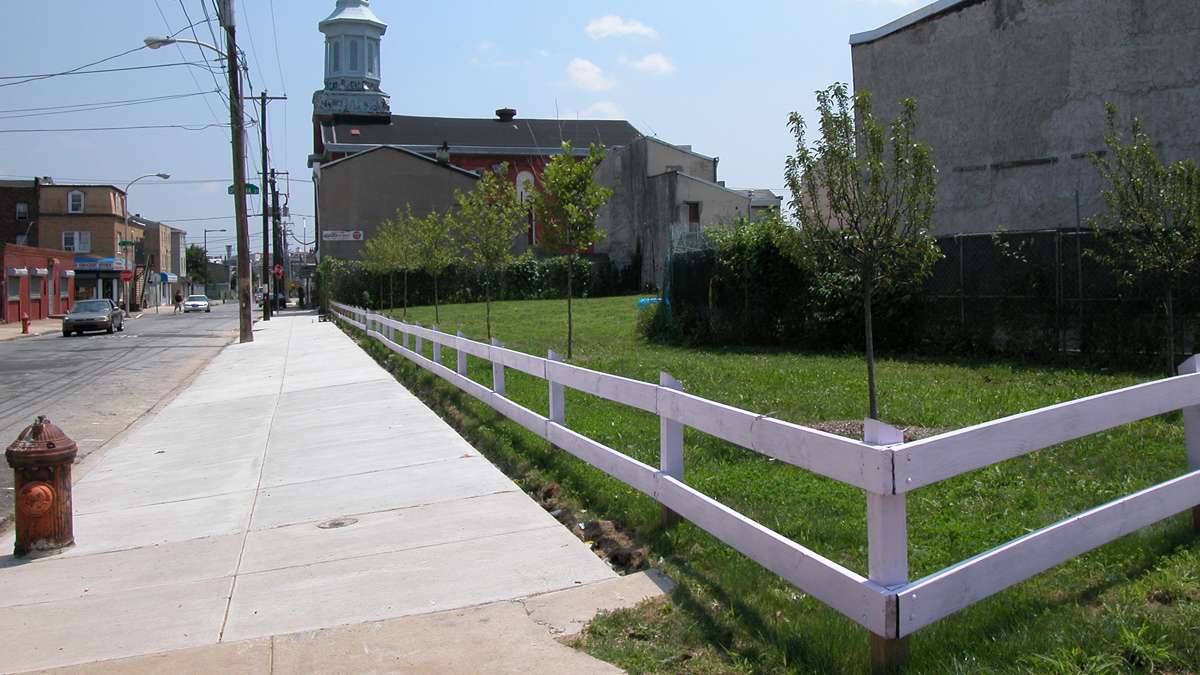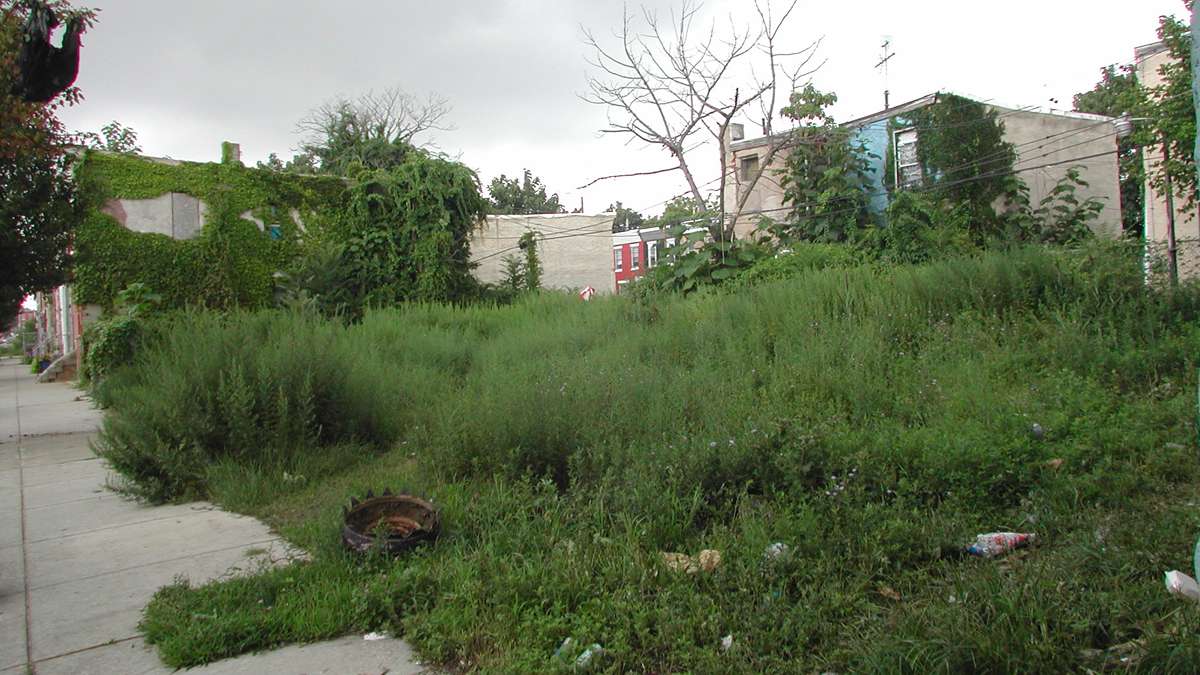Greening vacant lots in Philly is good for your heart [before and after photos]
Grass is better than trash. New results from a small University of Pennsylvania study suggest that green spaces reduce stress.
For years, Philadelphia has invested money to “clean and green” vacant lots around the city. Health researchers randomly chose several of those lots, then monitored the heart rates of study participants as they strolled by a tangle of overgrown weeds and trash.
Months later, the neighbors were wired up again as they walked by the newly “greened” vacant lots. During that second walk, their hearts thumped a bit more slowly.
Study author Eugenia South says your heart rate is a biological marker that is constantly changing and can be a proxy for the stress you’re feeling.
“Every second of your day, as you are sitting in a chair when you get up, your heart rate’s gonna go up just a little bit,” said South, a emergency physician at Penn Medicine. “As you run up the stairs from your kitchen to your living room, your heart rate is gonna go up, so there are changes in heart rate all the time that are happening.”
Heart rate is easy to record quickly. In the future researchers may also monitor blood pressure or changes in stress hormones such as cortisol, South said.
Philadelphians have said the city’s cleaned-up vacant lots make them feel better, or safer. South’s team reported those results in 2012. Now, the researchers are reporting the biological changes they recorded that suggest vacant-lot greening influences physical health.
South said the study is an “early piece of evidence” that might be valuable to urban planners and policy makers. She says vacant lot greening is a relatively simple low-cost intervention that doesn’t require individuals to change their behavior.
“So, you put this green vacant lot in and people will get the benefit of it whether they intend to or not,” South said.
The study, which included just 12 people, is part of wider push to better understand how neighborhood environment influences health.
The Pennsylvania Horticultural Society leads Philadelphia’s vacant-lot program with funding from the city.
Director Bob Grossman says clean up for a typical size lot costs about $1,000.
He already believed that greened lots make a community safer, but Grossman was surprised to learn that the investigators were able to track biological changes.
“We know that it has beneficial effects on folks in the neighborhood but we never dreamed that you could measure it in this way,” Grossman said.
WHYY is your source for fact-based, in-depth journalism and information. As a nonprofit organization, we rely on financial support from readers like you. Please give today.





